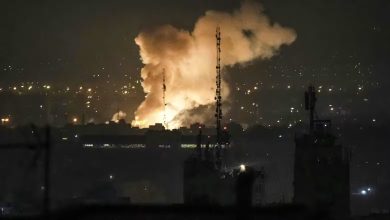Niger-Benin Border Dispute Deepens Amid Trade Halt and Tensions
Niger and Benin remain locked in a diplomatic freeze nearly two years after Niger’s military coup disrupted regional stability and economic ties.
Border closures and mutual distrust have crippled trade, while cautious diplomatic efforts offer a faint hope for reconciliation.
Nearly two years after a military junta seized power in Niger, tensions with neighboring Benin have escalated into a prolonged diplomatic and economic standoff, crippling regional trade and deepening mutual mistrust. Since Niger’s junta shut its border with Benin following the coup, relations between the two West African nations have sharply deteriorated, with both sides locked in a blame game rooted in security concerns and allegations of foreign interference.
Benin, which has rejected accusations of supporting destabilizing forces, insists it has made several efforts to normalize ties. However, these diplomatic moves have failed to break the deadlock, with the border closure continuing to inflict hardship on citizens and businesses in both countries.
“The people paying the price are those on both sides of the border,” lamented Ibrahim Abou Koura, a Nigerien transporter based in Cotonou, Benin’s commercial capital. His once-bustling compound in Zongo, used for shipping goods to Niger, now lies nearly deserted, a shadow of its former activity.
General Abdourahamane Tiani, Niger’s junta leader, remains firm in his stance, accusing Benin of hosting French troops allegedly training jihadists to undermine Niger’s sovereignty. In May, Tiani reiterated that the border would stay closed, not as an act of hostility toward Benin, but in protest against the presence of foreign military operations on Beninese soil.
Despite the border’s official closure, movement across the Niger River, serving as a natural frontier between the two countries, has continued. Travelers and goods frequently cross informally by boat, according to residents in border towns such as Malanville. Alassane Amidou, a local in the city, confirmed that many travelers disembark on one side and continue their journeys by land into Niger.
For truck drivers, however, the situation is more perilous. With road access through Benin blocked, alternative routes now pass through dangerous regions of Burkina Faso, where armed groups operate. The detours are not only costly and time-consuming but also expose drivers to high security risks.
“The Niger-Benin corridor is still the shortest and safest for our operations,” noted Gamatie Mahamadou, who represents a coalition of Nigerien truck driver unions in Niamey. He urged Niger’s military authorities to restore diplomatic and trade ties immediately, emphasizing that the nation’s economy and workers’ safety depend on a resolution.
There has been a flicker of hope. In late 2024, Niger’s crude oil exports to Benin’s port at Seme-Kpodji resumed through a long-delayed pipeline, marking a rare exception to the standoff. However, uranium exports from Niger remain suspended, pending either a breakthrough in relations or an alternate trade route.
Benin, for its part, continues to deny the presence of foreign military bases on its territory and maintains that it poses no threat to its neighbor. In an attempt to mend fences, two former Beninese presidents, Thomas Boni Yayi and Nicephore Soglo, travelled to Niamey last year, though their efforts fell short of achieving reconciliation.
In a recent statement, Benin’s Foreign Minister, Olushegun Adjadi Bakari, expressed cautious optimism. He maintained that Benin is open to dialogue and remains hopeful for a speedy resolution, provided that mutual security concerns are addressed. “The door remains open,” he affirmed, while also stressing that the blockade is not of Benin’s making.
Diplomatic developments could follow soon. Benin is reportedly considering appointing a new ambassador to Niamey, after quietly recalling Gildas Agonkan earlier this year. Agonkan’s public apology to Niger was seen in Cotonou as an unnecessary concession, signaling the need for a new envoy capable of commanding respect and trust.
Meanwhile, analysts say Benin’s growing vulnerability to jihadist attacks, alongside its limited coordination with neighboring Sahel countries, is a cause for concern. Lassina Diarra, a security expert in Ivory Coast, warned that a lack of regional dialogue could increase Benin’s exposure to extremist threats.
With Benin’s next presidential election scheduled for April 2026, political observers suggest that the outcome may present an opportunity to reboot serious negotiations and redefine regional diplomacy.



